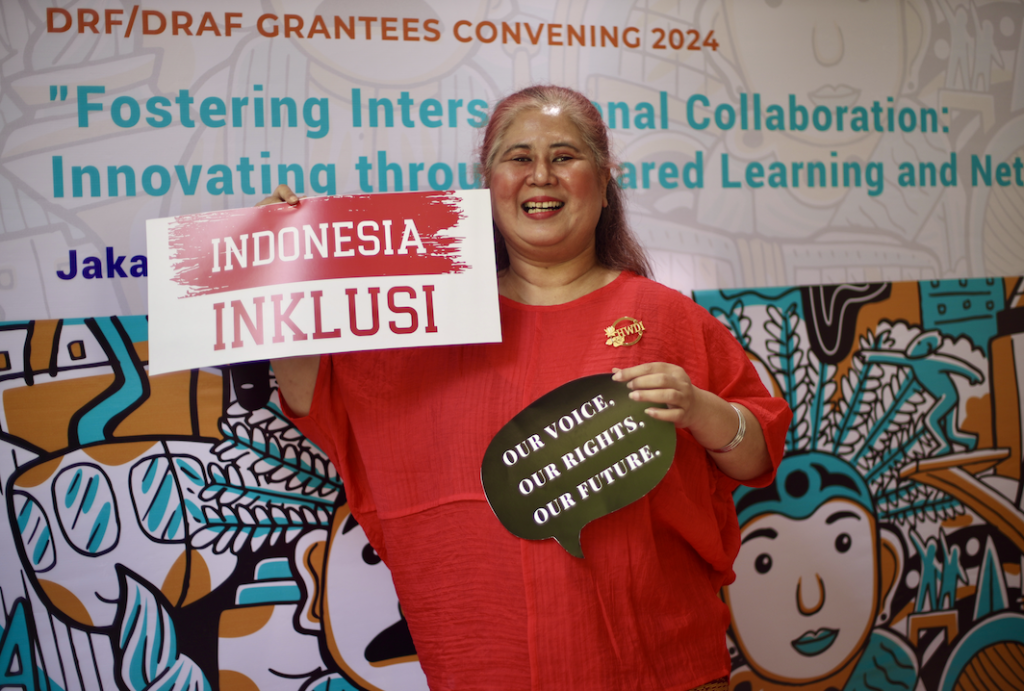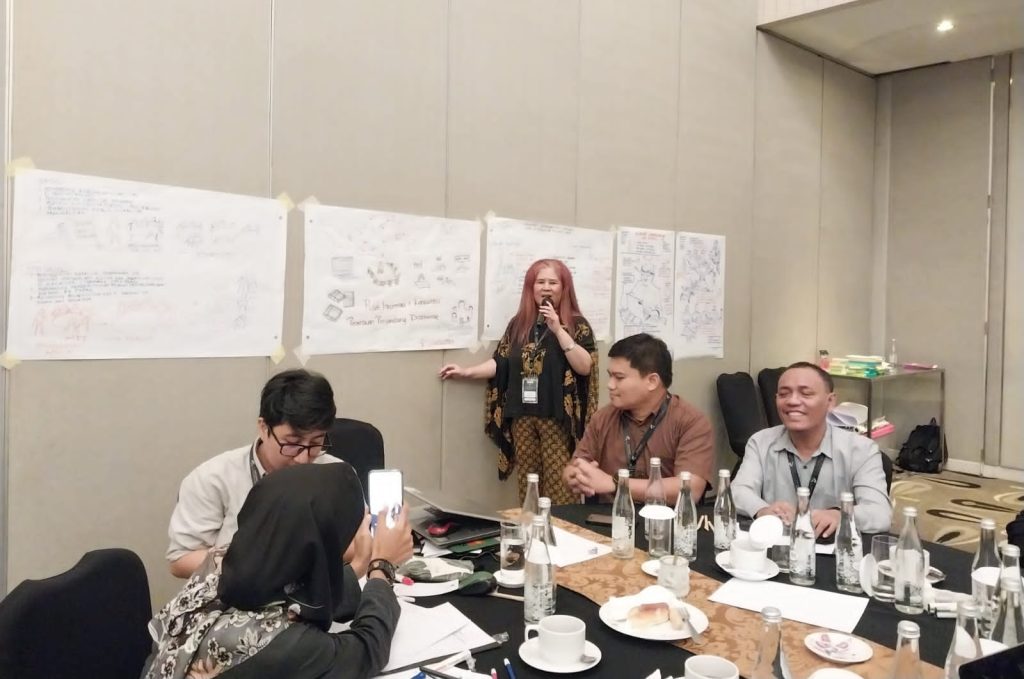Inclusive Care and Support Systems: A Pathway for Gender Justice
Blog by Rina Prasarani, an Indonesian feminist and a disability rights activist, who serves as the second Vice President on Advocacy and Awareness Raising with the Indonesian Association of Women with Disabilities.

Rina believes that advocating for inclusive care and support systems is our shared responsibility. Photo: Rucha Chitnis
My name is Rina Prasarani, and I’m a single mother of two sons living in Jakarta, Indonesia. My older son is in university, and my younger son has multiple disabilities, including visual impairment and developmental challenges. I, myself, am a woman with disability. Since 2016, I’ve been raising my sons on my own while working at a hotel and advocating for the rights of persons with disabilities through organizations like the Indonesian Blind Union and the Indonesian Association of Women with Disabilities (HWDI).
Care and support have always been central to my life. Growing up, my parents provided me with unwavering support. My father, even after a stroke, did his best to help me become independent. Those moments of support were transformative—they opened doors to education, built my independence, and gave me a sense of purpose. It empowered me to envision a future beyond barriers and to pursue my dreams.
Today, as a woman with visual impairment raising a child with disabilities, I am both a care and support provider and receiver. I understand how deeply essential these systems are—not only to survive but to thrive, and to live lives of dignity and purpose. In my case, support takes many forms. It might be access to accessible child care, services for my son, or simply the understanding of colleagues and the broader community who recognize the unique challenges I face as both a mother and an advocate. Without support, the weight of these responsibilities would be unsustainable.
I strongly believe that care and support should never be carried alone. We need systems, services, and social protection mechanisms in place to ensure that we, as women with disabilities, can balance our many roles.
It’s not just about having access to physical care, but also the broader support—emotional, social, and financial—that allows us to pursue our careers, advocate for change, and raise our families with dignity. It is about ensuring that we have the freedom to live life on our terms, without constantly battling for the assistance we need.

Photo courtesy Rina Prasarani
Every day, being both a mother and a person with a disability means making tough choices. I rely on a domestic worker at home to help care for my son. Without this support, I would have no time for my work, activism, or even a social life. But the financial burden is heavy, and I often have little left at the end of the day. Still, I continue my work because I believe that by contributing to my community, I am shaping a better future for my son and for others like him. Yet, despite all my efforts, true care and support aren’t always accessible. I had to halt my higher education due to a lack of professional caregiving options, and relying on friends or others meant compromising my own dignity and safety. I’ve faced instances of harassment while using public transportation, and even at home, I have to stay vigilant against those coming in to provide support who might exploit my visual impairment.
Support, however, is not just about meeting immediate needs—it has the power to unlock potential and independence. When I can access a personal assistant, I can participate fully in advocacy events, connect with others, and make my voice heard.
“What I dream of is a world where care and support are recognized as shared responsibilities. Where we, as women with disabilities, don’t have to carry these on our own, and where systems and services ensure our dignity, autonomy, and safety.”
Photo: Rina Prasarani, center, with her children.
As a grassroots activist, I believe the solutions must start from the ground up. Communities need to be empowered to develop inclusive models of care and support that reflect the realities of those who live with disabilities. Governments need to invest in these systems—not as an afterthought but as a core part of social protection and equity. It’s also crucial that we involve the voices of those who are directly impacted—those of us who live as care and support providers and receivers. We know what we need, and we are the experts in our own lives.
This is why I advocate for inclusive care and support systems—not only for people like me but for all families caring for loved ones with disabilities. We deserve the same dignity, opportunities, and freedom as anyone else. And I always believed that together, we can build a society where care and support empower us all to live lives of purpose and respect.